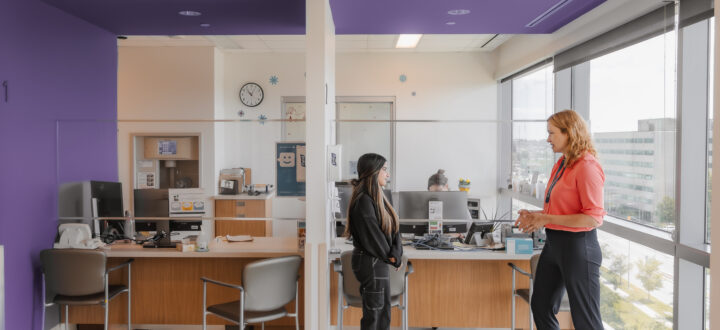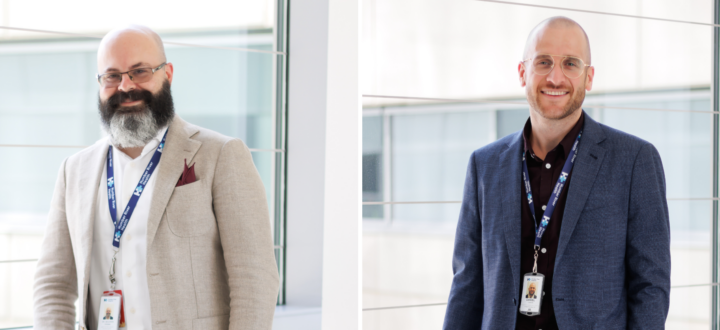10 People Making a Difference for Mental Health Patients at Humber
At Humber River Hospital, our Mental Health and Addictions Program is proud to make superior care available closer to home. The Hospital’s 5th floor is dedicated to providing inpatient and outpatient mental health services, including adult, child and adolescent clinics, and inpatient units. We have a dedicated Emergency Psychiatric Unit (EPU) in our Apotex Emergency Department, two rooftop courtyards, two TDSB-staffed classrooms for children and adolescents, activity and group therapy rooms, and 63 single inpatient rooms. Our services continue to expand faster than expected and we are seeing higher than anticipated demand for our care.
For mental health patients, it’s the people that make all the difference. We would like to introduce you to 10 people at Humber (of many!) who are making a difference in our Mental Health and Addictions Program:
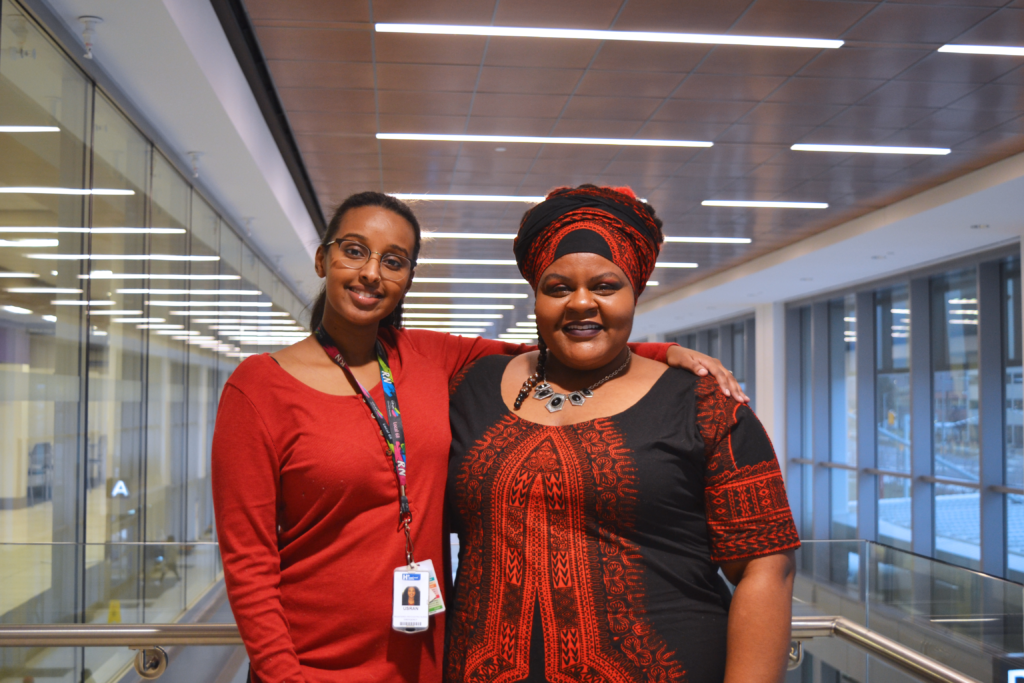
Usran Kahiye (left) – Registered Nurse, Mental Health Program
“I have a case load of 120 patients and I get to build a rapport with them. We’re in constant contact. Sometimes things happen in their personal lives and I can be there to support them. ”
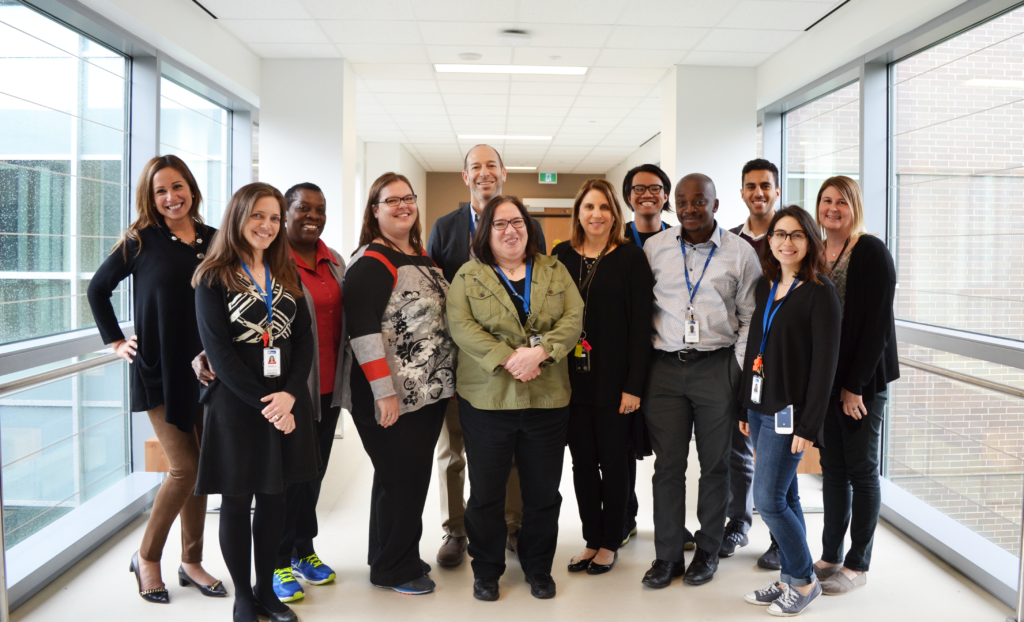
Dr. Phillip Maerov (centre) – Physician, Mental Health Program
“Humber provides service to a part of Toronto whose population faces a lot of barriers accessing mental healthcare. I feel it’s a privilege to work with that population and to help decrease some of the stigma they face within their own communities.”
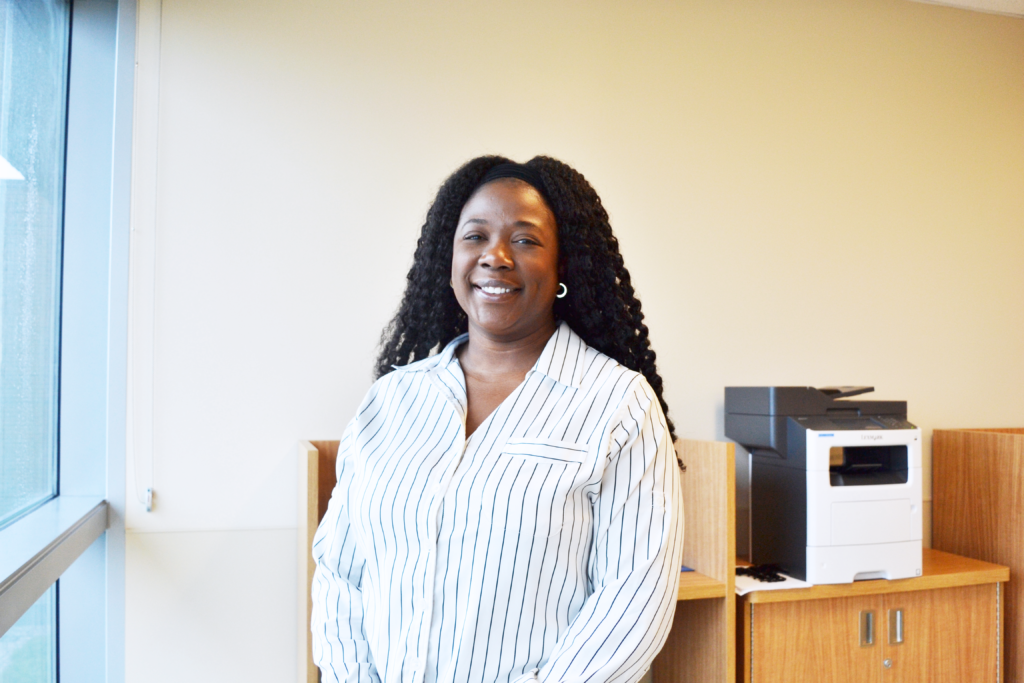
Jasent Harris – Nurse Clinician, Mental Health Program
“Our mental health patients are a community. They take care of each other. They are full of empathy and compassion, and it’s my goal that our patients are seen as people. Every time I work with a new patient I ask them three questions: How are we treating you? Are you being treated with compassion and respect? And, do you feel that we’re seeing you?”

Dave Welbourn – Senior Development Officer, Foundation
“My sister was diagnosed with bipolar disorder when she was a teenager and her journey has been difficult at times. She was always surrounded by a loving family who supported her and helped her. After getting to know the Mental Health team here at Humber and some of the patients, I’ve realized that not everyone has that kind of support. And that’s where we can really see and appreciate the impact that donors can have. When donors fund new clinics, medical technology and support programs for mental health patients who don’t have a lot of support, it can make all the difference.”
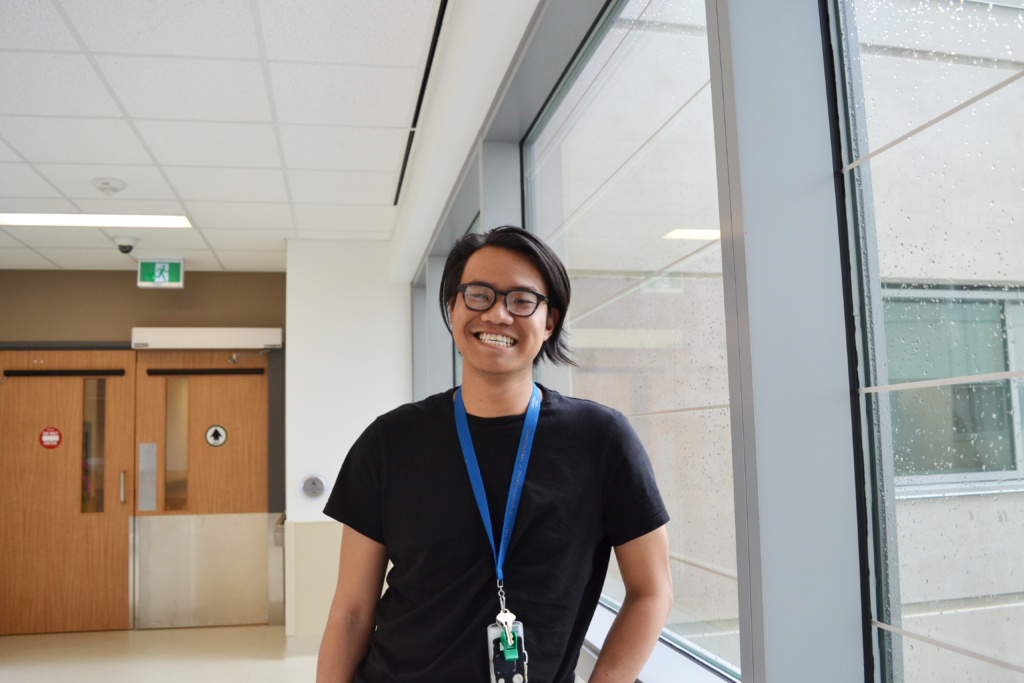
Nam An – Registered Nurse, Mental Health
“The model of care for mental health is fundamentally the same as any other department: you’re caring for someone so that they can become healthier. Mental illness is often stigmatized, so we do our best to normalize our patients’ experiences.”
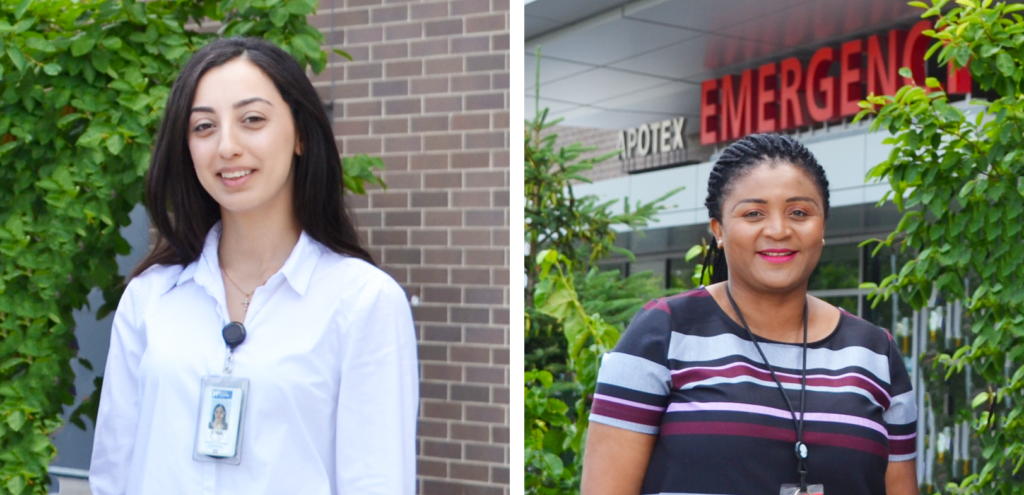
Lina (left) and Chidimma (right) – Registered Nurses, Emergency Psychiatric Unit
“We assess mental health patients who come into the ER and set goals for what happens next, like connecting them with a psychiatrist or offering stabilization suggestions. There is no typical shift and safety is a priority. Our job is to listen, to set realistic expectations, to build trust, and most importantly to reassure patients when they need it most.”
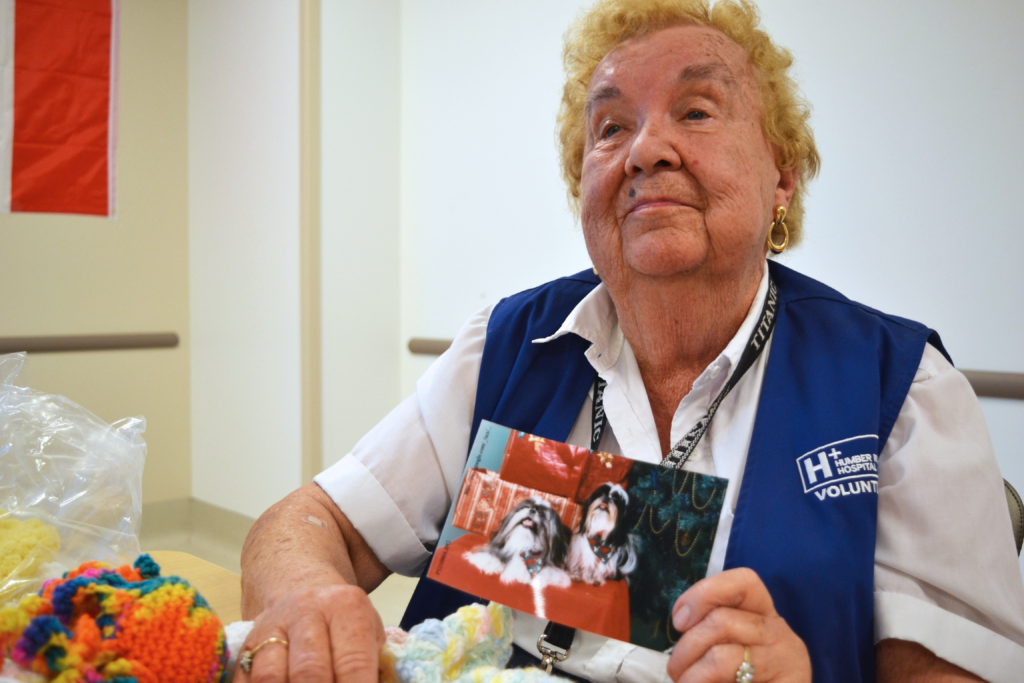
Shirley Cochrane – Volunteer
“When I was younger, I would bring my dogs in with me as therapy dogs. Now, I teach knitting in the Mental Health Unit. It’s the most fulfilling thing I’ve ever done.”
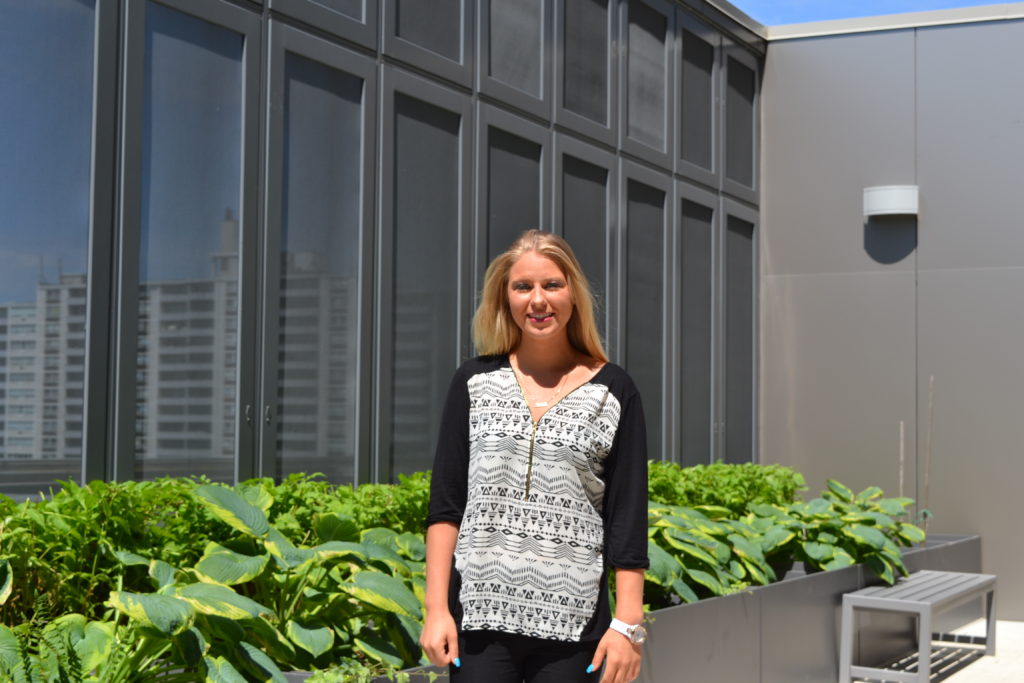
Michele Mrkvan – Registered Practical Nurse, Inpatient Mental Health Unit
“I work with inpatients in the Mental Health Unit. Mental illness can be so stigmatized, but mental illness doesn’t discriminate. We see people from every walk of life, from homeless individuals to professionals. Some people are with us for two days, while others stay for a year. Our inpatients each have their own room, and have access to this patio, our small gym, a laundry room, and a kitchen where we help them assess some of the skills they will need when they leave.”
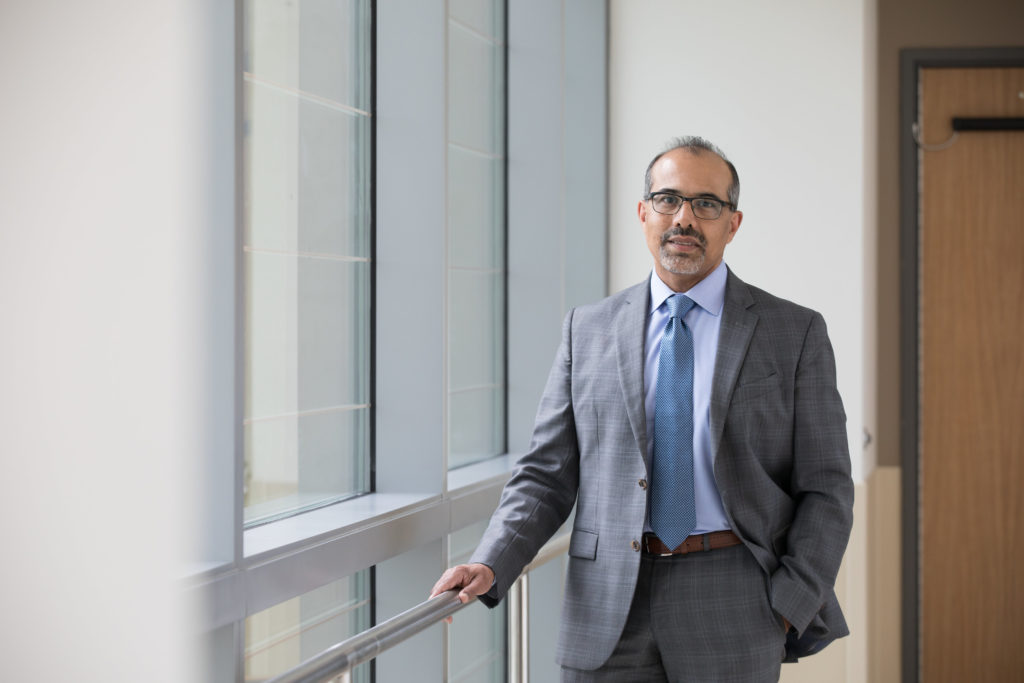
Dr. Sonu Gaind – Chief of Psychiatry/Medical Director of Mental Health
“In Mental Health, our equipment doesn’t have knobs or dials. It has faces. Our equipment is our great people. Just like a surgeon can’t do their job without a scalpel, we can’t do our job without talking with and understanding people. Our whole multidisciplinary team is essential to doing that. We want to build on our interdisciplinary capacity and support our patients in the best way we can.”





